1. Always Say Hello (and Mean It)

In the South, greetings aren’t just polite—they’re an art form. Whether you’re walking into a store or passing someone on a quiet street, a quick “Hey there” or “How y’all doin’?” is expected. Ignoring someone’s presence can come off as rude or aloof, even if you didn’t mean it that way. Southerners value warmth and acknowledgment as a sign of good manners and genuine friendliness.
This simple ritual reflects the region’s slower pace and emphasis on community. People take pride in treating everyone like a neighbor, whether they’ve known you for ten years or ten seconds. Outsiders often miss this cue and keep to themselves, which can feel standoffish. A smile and a hello go a long way in showing respect for Southern hospitality.
2. Never Show Up Empty-Handed
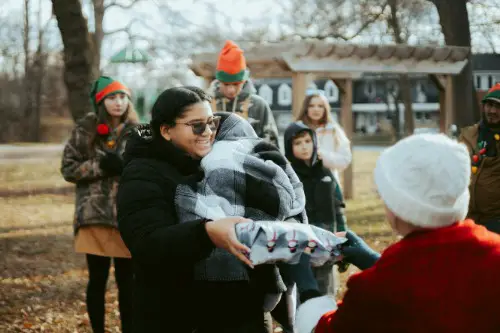
If you’re invited to someone’s home, bringing a small gift isn’t optional—it’s tradition. It could be a pie, a bottle of sweet tea, or even fresh flowers, but showing up with something in hand says you appreciate the invitation. It’s a gesture of gratitude that Southerners take seriously. Arriving empty-handed can make it seem like you don’t understand or value the host’s effort.
This unwritten rule stems from a long history of generosity in rural communities, where people shared what they had. Bringing a dish or a token gift helps build connection and reciprocity. It’s also a subtle way of saying, “I’m here to contribute, not just to take.” Outsiders who skip this step often miss the chance to make a warm first impression.
3. Don’t Refuse Food (Even If You’re Full)
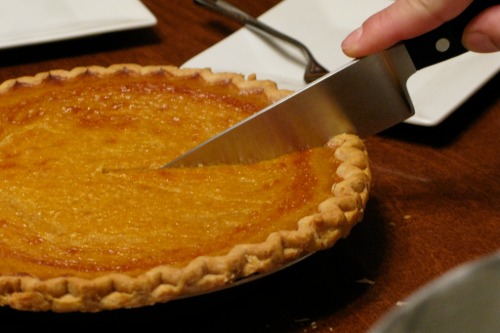
When a Southerner offers you food, they’re really offering affection. Turning it down too firmly can come off as rejecting their hospitality. Even if you’ve just eaten, the polite move is to accept at least a small portion or a glass of sweet tea. “No, thank you” is fine—but “I’d love a taste” is even better.
In many Southern homes, food is love, and feeding guests is a point of pride. A host’s cooking might be a family recipe passed down for generations, and sharing it is a way to welcome you into their circle. Outsiders sometimes miss this and refuse politely, not realizing it might sting a little. Accepting a bite or two keeps everyone happy and keeps the conversation flowing.
4. Mind Your “Yes, Ma’am” and “No, Sir”
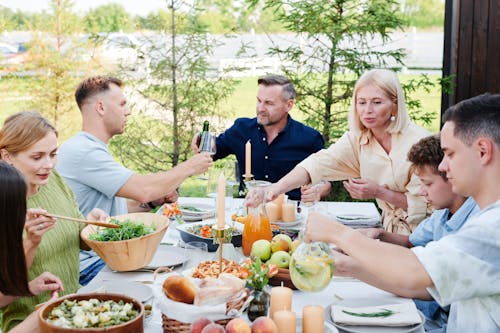
Politeness in the South often includes respectful titles, even among younger people and peers. Saying “Yes, ma’am” or “No, sir” isn’t about formality—it’s about showing respect. Outsiders sometimes think it sounds old-fashioned or overly deferential, but it’s deeply ingrained in Southern culture. Using it signals that you were raised right.
This language of manners starts early and carries through adulthood. Teachers, elders, and even service workers appreciate it as a sign of courtesy. Skipping it can come across as abrupt or dismissive. A simple “Yes, ma’am” can turn an ordinary exchange into a moment of mutual respect.
5. Respect Personal Space… But Expect Less of It

Southerners are friendly, but that friendliness often comes with a closer distance than some outsiders expect. Handshakes, hugs, and pats on the shoulder are all common. It’s not invasion—it’s warmth. People are used to showing care through physical touch and proximity.
That said, they expect the same openness in return. Backing away or appearing uncomfortable can seem like you’re cold or distrustful. The South’s social rhythm is about connection, not caution. When in doubt, follow the local lead—if someone leans in, it’s usually just to make you feel at home.
6. Always Offer to Help Clean Up
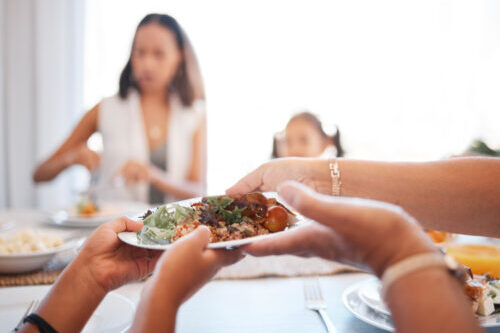
After a meal, standing up to help clear the table isn’t just polite—it’s expected. Even if the host insists you sit and relax, the offer itself matters. It shows humility and appreciation for their effort. Sitting idle while everyone else works can feel inconsiderate, even if you meant no harm.
This rule is rooted in the region’s communal spirit. In small towns and big families alike, everyone pitches in without being asked. Offering to help—whether it’s washing dishes or taking out the trash—shows you understand that hospitality is a two-way street. Southerners notice and remember who lends a hand.
7. Keep Politics and Religion Off the Porch (Unless Invited)

Despite the stereotype of the talkative Southerner, certain topics are best left alone. Politics and religion run deep in Southern life, and casual debates can get heated fast. Outsiders sometimes mistake open friendliness for open conversation about everything—but that’s a misread. Respect means knowing when to keep things light.
Small talk—about family, weather, or football—is the safest way to go. Once trust is built, deeper topics may naturally come up. Until then, the porch is for sweet tea, not strong opinions. Knowing that boundary helps you fit in and avoid awkward silences.
8. Dress a Step Nicer Than You Think
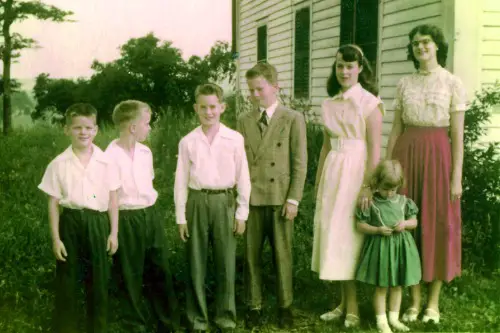
In many Southern communities, dressing neatly is a form of respect—for yourself and others. Even casual gatherings tend to lean polished: a clean shirt, tidy hair, and shoes that aren’t falling apart. It’s not vanity—it’s courtesy. Looking put-together shows you value the occasion and the people you’re with.
Outsiders sometimes misinterpret this as pretentiousness, but it’s actually a show of pride and consideration. Sunday best might not mean formal wear anymore, but effort still counts. From church picnics to backyard barbecues, dressing a little better than expected signals good upbringing. Southerners notice when you care enough to make the effort.
9. Don’t Rush the Goodbye

Goodbyes in the South take time. Leaving someone’s home isn’t just a wave and a “see ya.” There’s often a slow walk to the door, a few more stories, maybe even another glass of tea. Outsiders who bolt quickly can seem abrupt or ungrateful.
This long farewell is part of the charm—it’s how Southerners show they’ve enjoyed your company. It also leaves room for warmth, reassurance, and another round of thank-yous. Think of it as an unspoken rule: no one leaves until everyone’s ready. A Southern goodbye is more about connection than departure.
10. Don’t Talk Over Elders

Respect for age runs deep in Southern culture. Interrupting or talking over an older person is seen as downright rude. Outsiders might view it as lively conversation, but Southerners view it as bad manners. Listening first and speaking second earns you credibility fast.
This etiquette comes from long-standing family and church traditions. Elders are seen as keepers of wisdom, and their words deserve attention. You don’t have to agree, but you do have to show respect. In the South, deference isn’t weakness—it’s grace.
11. Compliment the Cook (Even If It’s Grandma’s Fourth Pie)
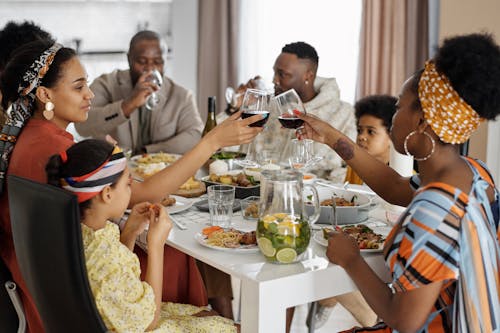
If someone’s cooked for you, you’d better say something nice about it. Complimenting the food is a small but powerful gesture of gratitude. Even if the meal was simple, recognizing the effort goes a long way. Skipping the compliment can make you seem unappreciative.
Food is a cornerstone of Southern hospitality, and the cook’s pride is often tied to tradition. Saying, “That’s the best cornbread I’ve ever had” will earn you a friend for life. Even if Grandma’s pie is one of many, each bite is a symbol of care. A little praise keeps the spirit of generosity alive.
12. Send a Thank-You (and Mean It)

Southern hospitality doesn’t end when you walk out the door. Following up with a thank-you note, text, or call seals the deal. It’s not about formality—it’s about thoughtfulness. Taking a moment to acknowledge someone’s kindness keeps the circle of courtesy going.
This custom dates back to a time when handwritten notes were the norm, and it still carries emotional weight today. Southerners take pride in being remembered and appreciated. A simple “We had the best time” or “Your hospitality meant so much” goes farther than you think. Gratitude is the last—and maybe most important—rule of all.
This post 12 Hidden Rules of Southern Hospitality That Outsiders Always Break was first published on American Charm.


